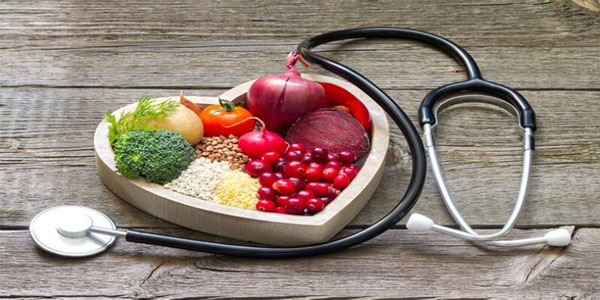In 2018, the American Heart Association reported that over 103 million Americans, or just under a third of the population, had hypertension (AHA). Even though uncontrolled hypertension (what physicians call high blood pressure) is linked to various potentially deadly complications, the CDC reports that many Americans still don't have it under control. Many may not even be aware that they have the condition. Neha Vyas, MD, a family medicine doctor at the Cleveland Clinic, tells Health that blood pressure is defined as "the force of blood on a vessel wall," and that the only way to know whether your blood pressure is too high is to have it checked by a doctor.
According to the CDC, there are often no symptoms associated with high blood pressure. Hypertension, or high blood pressure, is characterized by persistently elevated blood pressure against the arterial walls. This is a major risk factor for developing cardiovascular disease, stroke, and renal disease.
Several Different Things May Have A Role In Raising Blood Pressure, Such As:
- The danger of hypertension is heightened with advancing years.
- A higher risk of developing hypertension exists in those with a family history of the disease.
- Body mass index (BMI) and obesity are associated with an elevated risk of hypertension.
- Low levels of physical exercise have been linked to an increased risk of hypertension.
- Diets heavy in salt and processed foods have been linked to an increased risk of hypertension.
- High blood pressure has been linked to stress in several studies.
- Drinking too much alcohol raises blood pressure risks.
- A side effect of smoking is increasing the likelihood that you'll get hypertension.
- High blood pressure risk increases in those with pre existing illnesses like diabetes or renal disease.
There Are Several Things You Can Do To Lower Your Risk Of Hypertension:

- Reduce your risk of high blood pressure by eating well and being active.
- Regular physical activity, such as exercise, has reduced blood pressure. Do at least 30 minutes of moderate-intensity physical activity every day.
- Reduce your blood pressure by eating a diet high in fruits, vegetables, whole grains and low in salt and processed foods.
- Reducing your alcohol intake to no more than one drink per day for women and two drinks per day for males will help lower your blood pressure.
- The risk of hypertension may be greatly reduced if you give up smoking.
- To maintain a healthy blood pressure level, it is important to use stress management techniques.
- To reduce blood pressure, it is important to have a good night's sleep, ideally between 7 and 9 hours.
- Take frequent readings of your blood pressure: Checking your blood pressure regularly may help you detect problems early and take care of them.
- By following these guidelines, you may improve your Health and lower your risk of high blood pressure.
Diet And Blood Pressure

Some people's high blood pressure is caused, at least in part, by their diets, namely their high salt consumption. If you want to make dietary adjustments to bring your blood pressure down, Dr. Vyas recommends cutting down on salt. Dr. Vyas notes that being overweight is another risk factor for high blood pressure. Therefore, it is important to eat healthily, exercise, and avoid drinking excessively to reduce your blood pressure.
Uncontrollable Factors
Some risk factors, such as becoming older and having a family history of the disease, are beyond anyone's control. Even if you don't smoke, your chance of developing hypertension increases if you have a family history of the condition, so you must pay special attention to the lifestyle mentioned above. Finally, Dr. Vyas says stress is somewhat beyond one's control. What is the most important thing to remember from this? Avoiding everything that contributes to high blood pressure is within your control, but there are things you can do to lower your risk. These include not smoking, keeping a healthy weight, and limiting your alcohol intake. Also crucial: Have your doctor check your blood pressure often to ensure you maintain a healthy level.
Conclusion
Eating well, keeping a healthy weight, exercising regularly, drinking alcohol in moderation, and avoiding smoking are all proven ways to prevent or lower high blood pressure. In 2018, the American Heart Association reported that over 103 million Americans, or just under a third of the population, had hypertension (AHA). However, many Americans remain unable to control their high blood pressure (also known as hypertension), and many may not even be aware that they have the condition.




